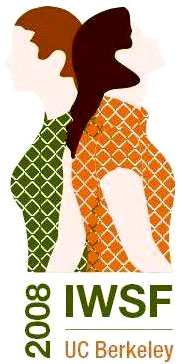
“Dad, would you rather I were a boy?” The first time my daughter asked me that she was in her teens, arguing for easier curfews and a more liberal attitude towards boyfriends. What she was really asking was, “Why is my worth as a human being disproportionately tied up in my chastity?”
As I browse the program for the 19th international conference of the Iranian Women’s Studies Foundation, I see that some of the lectures and panels pose same question from different angles. For example, Sharareh Shahrokhi’s lecture topic will be, “The right to choose what to wear: an essential need for an Iranian woman or a superfluous one?”
Though the hejab topic gets top billing in Western media, Iranian women activists who live under IRI laws wonder what priority they should give the hejab relative to, say, unfair divorce laws. Does it make sense to bicker over a piece of cloth while custody of your child is threatened? On the other hand, bowing to the hejab symbol gives up turf even before the battle has begun. Gender segregation works against equitable family law.
Iran’s adultery laws are another place where justice and symbolism are at odds. Stoning cases are few and there is a moratorium on carrying out such sentences. But the very fact that adultery is a capital offense in the law books, means that in principle the IRI assumes the power to end a human life based on her sexual behavior. Moreover it has reserved its most hateful form of punishment for adultery. Stoning in its original intent is execution by collective injury at the hands of one’s own community.
Conference panelist Soheila Vahdati Bana, a leading activist against Iran’s stoning laws, has argued that the punishment affects women disproportionately. Iranian Family Law allows female child marriages, restricts a woman’s right to divorce, handicaps the mother in child custody cases, and is biased in favor of the husband in domestic abuse cases. All these factors tempt the wife to seek affection outside the marriage.
The second time I got the question from my daughter, “Dad, would you rather I were a boy,” she was no longer fighting curfews. She was wondering about gender and the nature of power and leadership as she embarked on a long period of professional training.
I don’t know where in the world she will end up living — Iran, US, Europe Africa. But I had assumed the disadvantages of being a woman in Western cultures are fast disappearing. Both senators from my state of California are women, and a powerful California Congresswoman is the Speaker of the US House of Representatives. By comparison women in Iran are virtually deprived of a share of official power. The power and leadership question depends on which country you’re talking about, or so I thought.
Guest speakers, Soraya Fallah and Sakineh Sahebi may disagree. Conference organizer Jamileh Davoodi says these thinkers look beyond national boundaries to the more fundamental issues of Patriarchy. “There is no external or internal Patriarchy. Our borders are not different,” Davoodi paraphrases.
A year ago, I had little idea what she may be talking about. But during the Hillary Clinton campaign there was an unease in American society that told me there is something to “get” that has nothing to do with whether a woman can hold high office, and may even be unrelated to sexism as it is normally defined. I hope to find clarification by listening to these speakers’ discourse on fontierless patriarchy. Right now the feeling is vague; rather like the pause after you unknowingly invite a vegetarian to your barbecue.
While thinking globally, there may be reasons to act locally by seeking solutions in the unique context of each culture’s history and political circumstance There will be representatives from Iraq and Palestine at the conference, and one question that I hope comes up is whether it is good strategy for Iranian women to approach their problem from the global view of Islamic repression. While breaking formation has the advantage of better focus, cooperation and shared strategies have also proven very effective. For example the famous Million Signature Campaign to end gender discrimination in Iran is modelled after a political mobilization program that began in Morocco. Mitra Shodjaie will be there to discuss this groundbreaking campaign.
The conference also includes discussions on the contribution of the Internet to free speech, the new sexual risk taking patterns of urban women, and the specific needs of younger generation of Iranian women.
I’m also rooting for Partow Nooriala’s talk to be a hit. Her topic, “The necessity of shattering traditional images of women in cinema,” reflects the wisdom of the conference organizers in recognizing how art brings about social change. Naturally, there will be music, singing, and this play.
Here is the contact infor for the conference.
Visit www.arisiletz.com






